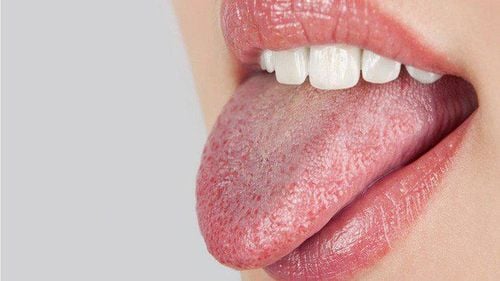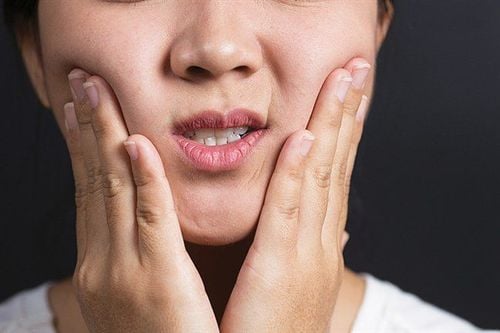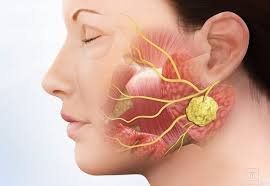This is an automatically translated article.
The article is professionally consulted by Doctor of Dental - Jaw - Facial - Department of Medical Examination & Internal Medicine - Vinmec Hai Phong International General Hospital.Salivary gland calcification is a calcified structure that forms inside the salivary ducts. When stones appear, the flow of saliva into the mouth can be blocked, causing discomfort, worse, affecting the facial nerves.
1. Salivary gland calcification is what disease?
Salivary gland calcifications, also known as salivary gland stones, are usually caused by calcium in the saliva deposited around the inflammatory mass, gradually forming stones. This stone is located right in the salivary gland. When the patient chews, the gland becomes irritated and swollen.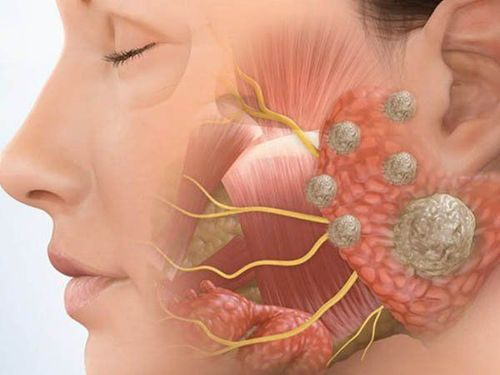
Vôi hóa tuyến nước bọt gây khó khăn cho người bệnh trong ăn uống
2. Salivary gland stone formation
Salivary gland stones are calcium deposits in the lumen of the salivary glands, causing partial or complete blockage of the salivary glands into the mouth.Salivary gland stones are often located in large salivary glands such as: parotid, submandibular, and sublingual.
Some risk factors for salivary gland calcification include: Excessive dehydration, poor nutrition, taking certain medications such as antihistamines, psychiatric medications, and blood pressure medications. , gallbladder disease, salivary gland trauma. The risk of stone formation is also higher in people who have inflammation of the salivary glands or smoke a lot.
3. How to detect salivary gland calcification disease
Because saliva flow is blocked, patients with salivary gland stones may have symptoms such as: Pain, feeling like pressure in the glands and ducts, sometimes severe pain, especially when eating; swollen glandular area; inflammation, edema around the duct area; Gentle massage of the gland does not reveal salivary secretions and sometimes palpable stones.Cases of bacterial superinfection may be accompanied by fever, lymphadenopathy at the angle of the jaw, and possibly pus. When inflamed, it can form an abscess, damage the nerves and control the activities of the facial muscles, causing facial paralysis.
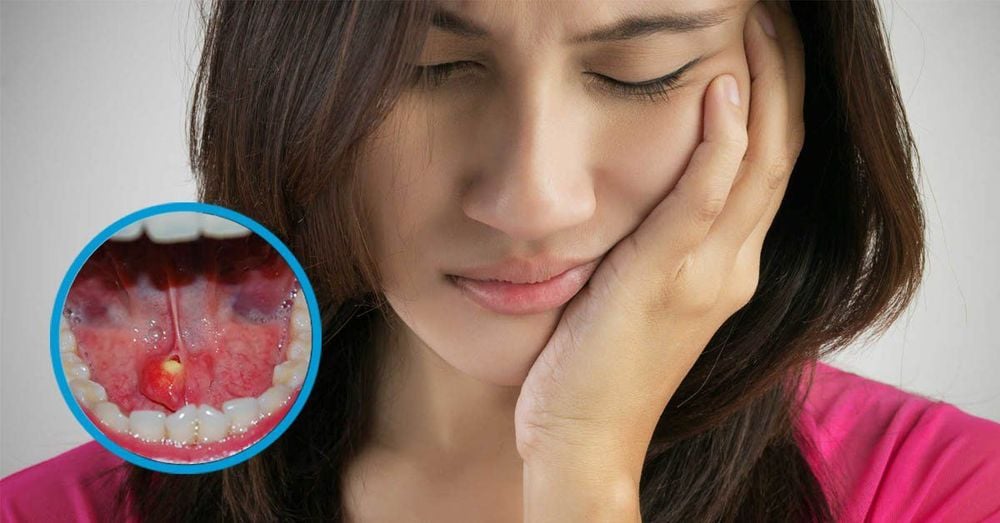
Vôi hóa tuyến nước bọt gây đau và nổi hạch ở góc hàm
4. Complications of salivary gland calcification
Some cases can be dangerous when the stone is removed without complications but continues to grow without intervention by removing it can leave dangerous complications such as:Inflammation of the area Floor of mouth: The patient has severe pain in the floor of the mouth, spreading to the ear, unable to eat, swallow, and speak. Mild or severe fever, health is affected by pain and restriction of eating, infection spreads to the floor of the mouth. Inflammation of the submandibular gland: The patient feels severe pain under the jaw, may spread to the ear, swallowing is difficult, pain, fever, submandibular gland is rough, swollen, painful, red hot, painful, progressing to festering, bursting pus to skin fistula.
5. Some treatments for salivary gland calcification
The first and foremost thing is to practice good oral hygiene and take antibiotics if there is an infection. For small stones, simply stimulating saliva flow by sucking on lemons or sour candies can help the stones pass through the salivary glands more easily. In other cases, the doctor may massage or push the stone out of the salivary gland. For large stones, it will be difficult to get the stones. The doctor usually makes a small incision in the mouth to remove the stone. In the case of complicated salivary gland stones, doctors are now using endoscopy to remove the stones. For people with recurrent stones or salivary glands that have been damaged irreversibly, surgery to remove the thyroid gland.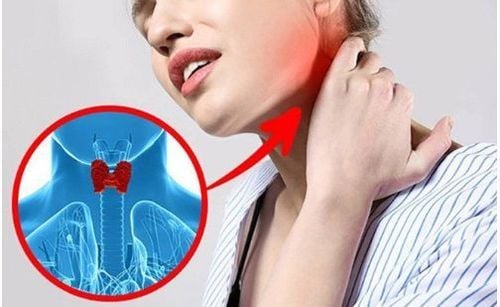
Người bệnh có thể cần phải phẫu thuật cắt bỏ tuyến giáp để điều trị vôi hóa tuyến nước bọt
6. Prevention of salivary gland calcification
It is important that you drink enough water. Replenish water when the body is deficient. Because when there is a lack of water, saliva becomes more concentrated and easier to deposit stone-forming substances.Besides, remember not to arbitrarily use drugs not according to the doctor's instructions.
No smoking. Good oral hygiene. Regular examination to detect early diseases of teeth, gums, and oral mucositis...
Please dial HOTLINE for more information or register for an appointment HERE. Download MyVinmec app to make appointments faster and to manage your bookings easily.






